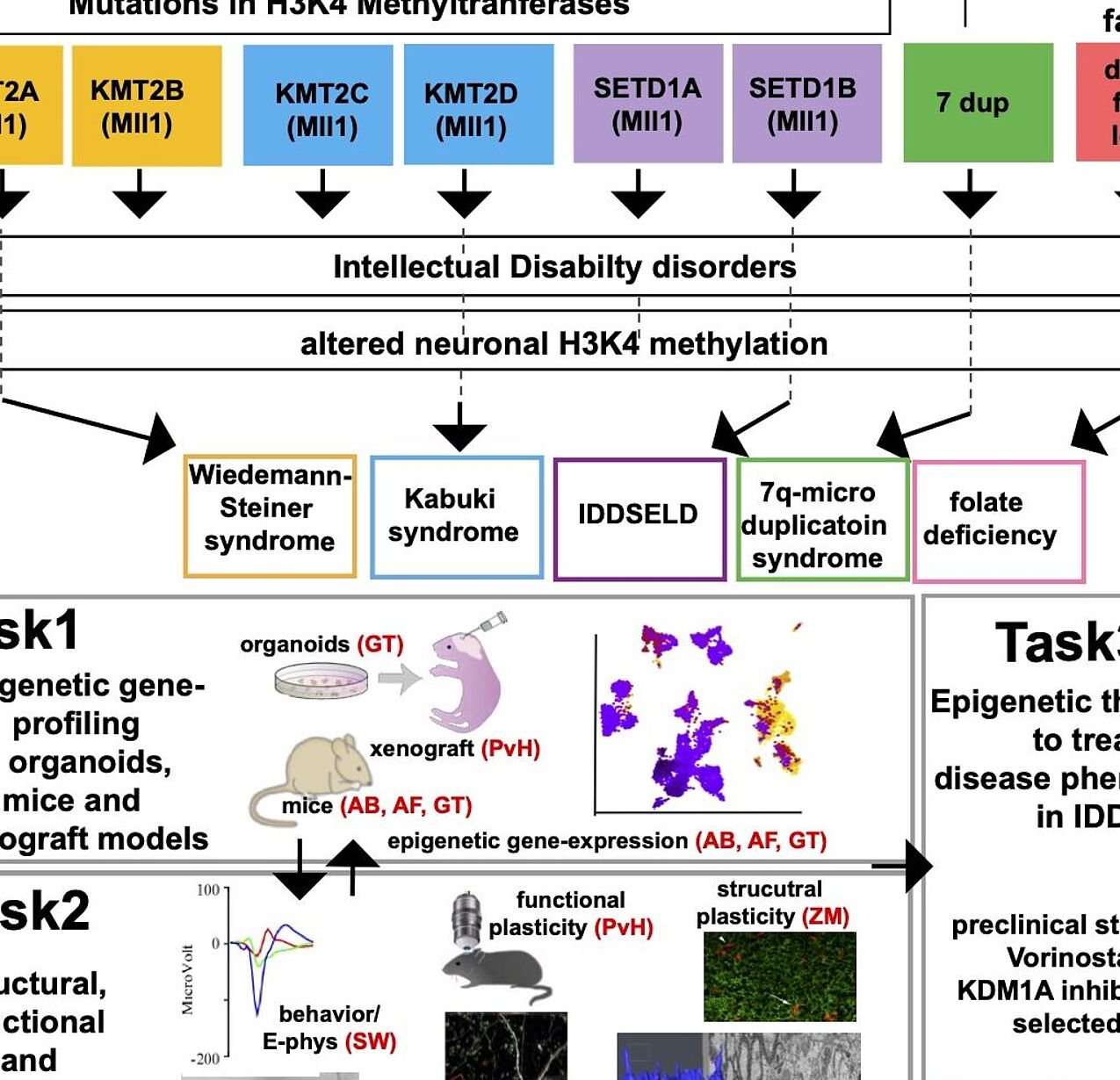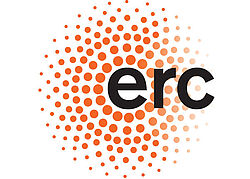ERA-NET Neuron Project: EPINEURODEVO
PATIENT-CENTERED TARGETING OF EPIGENETIC VULNERABILITIES IN NEURODEVELOPMENTAL DISORDERS: A CROSS-DISCIPLINARY PLATFORM FOR DRUGGABLE DISEASE MODELS
EPINEURODEVO is a consortium with partner from 6 European countries addressing the role of epigenetic gene-expression in neurodevelopmental diseases.
Project Coordinator:
| Name | Andre Fischer |
| Institution/Department | German Center for Neurodegenerative Diseases (DZNE) |
| Address | Von Siebold Str 3A, 37075 Goettingen |
| Country | GERMANY |
| Phone + Fax | +49 551 3961-211 |
| andre.fischer@dzne.de |
Partners:
| No. | Country | Name of the group leader | Institution and full affiliations (e.g. address, phone + Fax, e-mail) |
|---|---|---|---|
2 | Italy | Guiseppe Testa | Istituto Europeo di Oncologia;Experimental Oncology/High Definition Disease Modelling Lab: Stem Cell and Organoid Epigenetics. |
3 | Spain | Angel Barco | Agencia Estatal Consejo Superior de Investigaciones Científicas (CSIC), Instituto de Neurociencias, UMH-CSIC. |
4 | Israel | Shlomo Wagner | Sagol Department of Neurobiology, University of Haifa. |
5 | Belgium (FWO) | Pierre Vanderhaeghen | VIB KULeuven Center for Brain & Disease Research. |
6 | Hungary | Zoltan Meszar | Department of Anatomy, Histology and Embryology, University of Debrecen. |
The Topic
Intellectual disability disorders (IDDs) represent a heterogenous group of neurodevelopmental disorders characterized by early childhood onset of learning impairment and behavior defects. By now many mutations that cause IDDs have been identified. Interestingly, genes that control epigenetic gene-expression are overrepresented and seem to converge at the level of histone methylation. Since epigenetic gene-expression is a key process controlling neuronal function in the developing and adult brain targeting the epigenome could bear promising strategy to treat IDDs. Our overarching aim is to better understand the epigenetic vulnerabilities in neurodevelopmental diseases with a specific focus on IDDs that converge at the genetic and epigenetic deregulation of histone 3 lysine 4 (H3K4) methylation. In this project, we will perform for the first time a truly systematic analysis of H3K4-related processes across the spectrum of IDDs ranging from epigenetic gene-expression changes to the corresponding functional consequences. We will moreover test corresponding therapeutic strategies. Our consortium is in a perfect position for this task as it combines the unique expertise in epigenetics, brain development, neuronal structural and functional plasticity with ample experience in modelling IDDs in mouse models, iPSC derived human brain organoids and in xenograft models. Our results will provide a blueprint for translation research in neurodevelopmental diseases and could have immediate clinical impact.
The project
Our consortium combines complementary expertise to study the epigenetic underpinnings of IDDs in a translational context . No partner alone could conduct the proposed project. In brief, GT is an expert on IDDs which he studies in iPSC-derived human brain organoids and made important contributions on the role of GTF2I and KDM1A in 7dup syndrome. In the current proposal, GT will contribute the mouse model of 7Dup syndrome (GTF2I duplication), the IDD patient derived cortical organoids and will perform scRNAseq in both in vitro and in vivo models. AB has a long standing interest in IDDs which he studies in corresponding mouse models with a specific focus on the de-regulation of epigenetic profiles in brain tissue. He will contribute the mouse model of KDM1A and perform the analysis of chromatin accessibility, occupancy and long-range interaction . AF studies the role of H3K4 KMTs in the CNS. He will provide conditional knock-out mice for KMT2A, KMT2D and SETD1B and perform the cell-type specific analysis of chromatin marks via ChiP-seq for all models and also contribute to preclinical studies that may include intracerebral stereotactic injections. PV works at the interface on iPSC models and mouse models of cortical development and has established the xenograft models. Thus, he will transplant the cortical neurons from partner GT into mouse prefrontal cortex and study the functional and structural plasticity of the cortical neuronal circuitry. SW is an expert in the behavioural assessment of IDD-like phenotypes in mice including social function and in in vivo electrophysiology. He will perform these experiments in the mouse models provided by AB, AF, GT and PV. Finally, published and preliminary data suggest that a key structural consequence of altered epigenetic gene-expression in IDDs is altered synapse number and morphology that might in part be a consequence of a de-regulated ECM, which has long been discussed as a therapeutic target for CNS diseases linked to cognitive dysfunction. Partner ZM has ample expertise in the analysis of the synaptic morphology using nanoscale, two-photon as well as electron-microscopy. He will therefore study synapse morphology and ECM dynamics in the models provided by the other partners.




